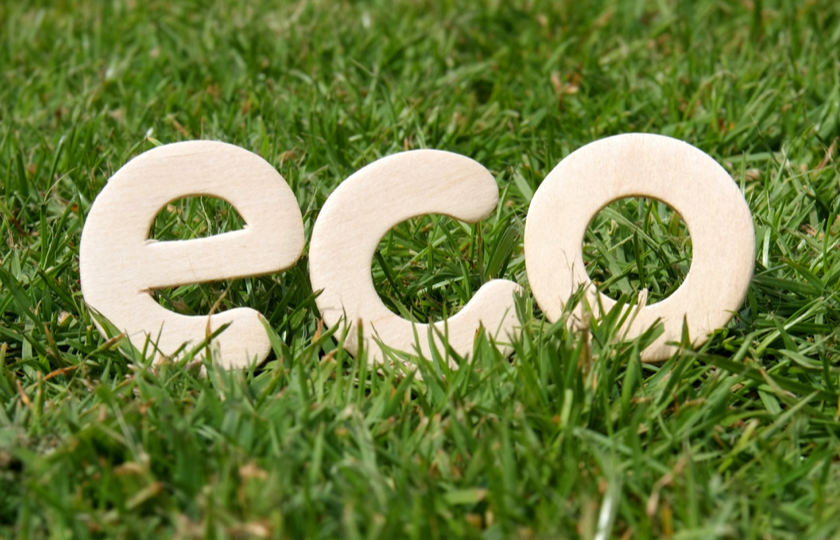A new trend in advertising is on the rise – green marketing – targeting the burgeoning number of consumers who are embracing a more sustainable way of living and purchasing.
While there are many corporations with genuine intent to protect the planet and tackle climate change, others are just taking advantage of the marketing mileage going green has to offer.
It’s not surprising to see why. According to a recent sustainability index, 64 per cent of Gen X consumers would spend more n a product if it comes from a sustainable brand, and that figure increases to 75 per cent among Millennials.
As the public embraces the pursuit of greener practices, businesses risk an onslaught of greenwashing scrutiny.
In this new landscape, more green initiatives, advocacies, and offsets have sprouted, but how can we ensure these pledges are credible?
What is greenwashing?
Greenwashing is when a business claims to be environmentally conscious, but only for marketing purposes. It is when a brand’s words do not match up to its actions.
The term was initially coined in 1986 by environmentalist Jay Westerveld in an essay inspired by the irony of the “Save the Towel” movement by hotels that had little impact beyond saving hotel laundry costs.
Philip Beere, VP of marketing at Sightline Payments, tells Business News Daily that while things have changed over the recent years, greenwashing still exists – more than ever.
“The core theme has stayed the same,” said Beere. “The no 1 violation embellishes the product or service’s benefit.”
Companies accused of greenwashing
Celebrity and entrepreneur Kim Kardashian has been accused of “greenwashing” her new skincare brand SKKN. A recent post on Instagram received backlash from fans, noting that the brand’s refillable packaging is wasting more material than saving.
SKKN has promoted the brand to have “sustainable” packaging. A video demonstrates how to insert the re-fillable product by adding the new item into the reusable outer layer container.
Other big brands have faced litigations about their environmental claims this year.
For example, US supermarket giant Walmart falsely marketed rayon textile products as bamboo, claiming that the “bamboo” products were made using eco-friendly processes; converting bamboo into rayon requires toxic chemicals. At the same time, sunscreen brand Banana Boat marketed its products as reef-friendly when they contain chemicals harmful to corals and marine life.
More can be found here.
Who to hold accountable?
James Lorenz, executive director of Action Speaks Louder, a non-profit that holds firms accountable for their promises, and Janissa Ng, senior account director of PR Spurwing and former head of PR and content at WWF Singapore, shared their thoughts on green marketing and greenwashing in a podcast with Eco-business.
“I think many companies want to take action because their staff care, their customers care, and their investors care,” shares Lorenz. “And I think some of them are genuinely taking action, but others are just sensing the need to take action, basically doing things which are little more than skin deep.”
Ng shared that the most common culprits are the people from PR themselves – constantly creating ads, releases, and pitches about the next new sustainable products.
“I think that we have a huge part in kind of perpetuating the confusion and misinformation around what’s sustainable, and what’s not,” said Ng. “I don’t know how many times I’ve edited that out of materials, or, for example, like something being sustainable, just because it’s recyclable.”
How to ensure climate pledges are credible
The rise of green marketing, which is usually based on legitimate positive environmental claims, can sometimes blur the line between authenticity and greenwashing.
Research organisation New Climate Institute recently looked at climate plans of 25 multinational companies and most of them received low marks on actually reducing emissions.
According to the organisation, it’s “more difficult than ever” to distinguish real climate pledges from pretentious claims.
“The ground rules for corporate pledges are still being written. And regulators are increasingly focused on the issue,” reports the New York Times.
Climate and data scientist Angel Hsu, founder and director of Envirolab, explains to TEDx that greenwashing tends to fall into one of three types: unintentional, “passing the buck”, and the “pernicious kind”. Unintentional is where eager CEOs make well-intentioned pledges without fully understanding what is needed to implement them.
“There’s a lot of pressure these days for companies to make these kinds of commitments without really thinking it through first and developing a plan,” said Hsu. “Often, the cart comes before the horse.”
The second category, “passing the buck”, is more commonly known as carbon offsets. Rather than reducing their own emissions, companies pay others to pick up plastic, plant trees, or make greenhouse gas cuts.
“There’s a huge debate that’s blowing up right now about the credibility of these offsets,” adds Hsu.
“In several well-publicised cases, companies have invested money to protect trees that were never in danger of being cut down.”
The third category, the “pernicious kind” is where companies seek to project an image of climate leadership and make pledges with no follow-through.
“They should be saying exactly how they’re going to reduce their emissions all the way to zero,” Hsu explains. “If they have to rely on offsets – where are those offsets coming from? How credible is the offset company that they’re working with?”
Finally, CDP’s Simon Fischweicher also advised being sceptical of pledges that lean heavily on investing in future carbon-capture technologies.
“While these may play a critical role one day, right now they are “shiny objects” that distract companies from the urgent work of decarbonising their own value chain,” said Fischweicher.



